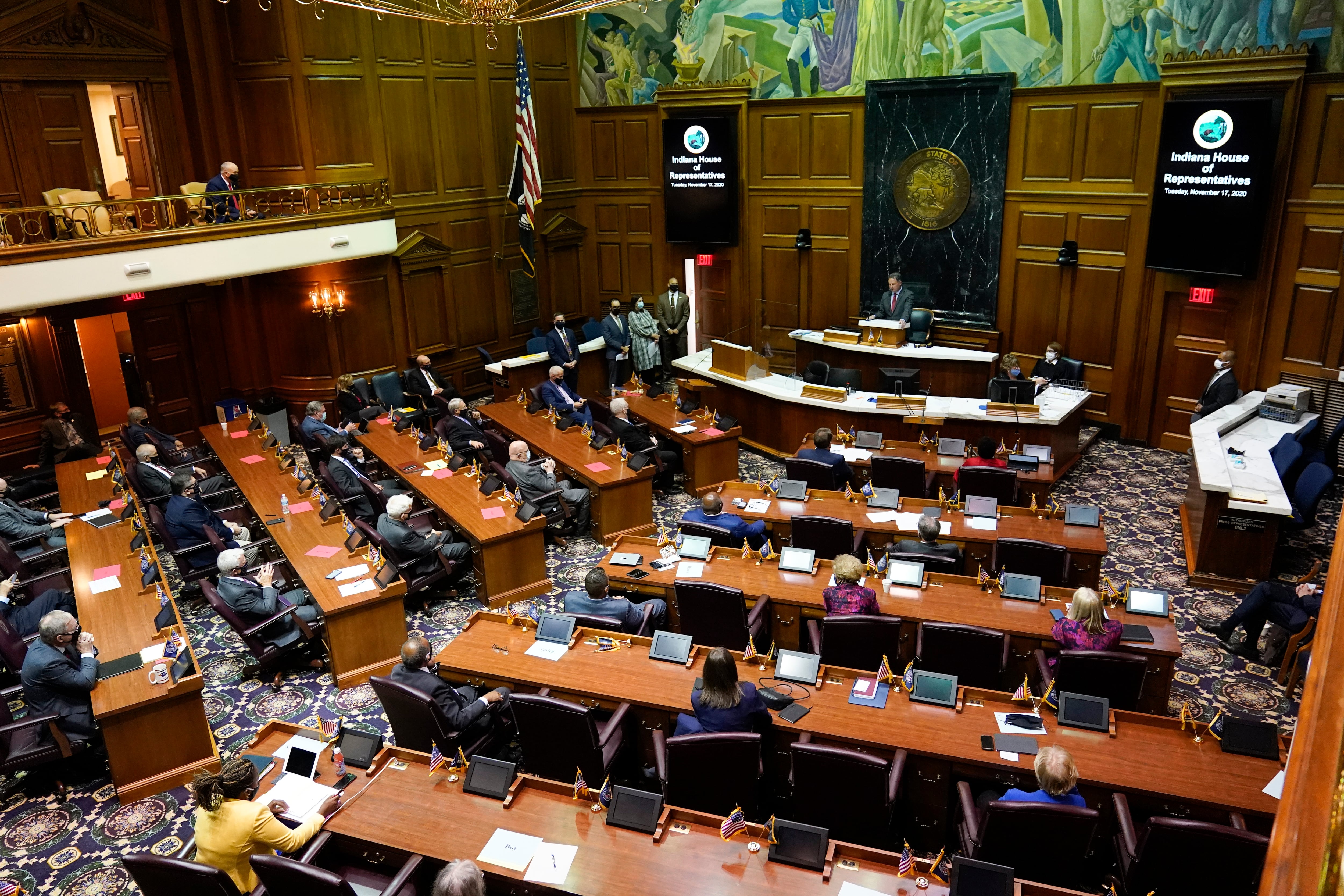A new Indiana law strengthens previous bans on schools offering gifts or perks to parents in exchange for enrolling their students. But so far, officials don’t appear to be enforcing the stricter provision at schools that receive public money.
The omnibus House Enrolled Act 1093, which Gov. Eric Holcomb signed in mid-March and went into effect July 1, tightens a previous rule that bans schools and their representatives from offering “any item that has monetary value, including cash or a gift card” as an incentive to enroll.
The bill came about following a Chalkbeat report on the growing criticism of a virtual school that first offered parents cash, and then a debit card-like points system, to order educational materials that include textbooks, Netflix, educational toys, and museum memberships.
The school, Tech Trep Academy, still uses its points system, saying it’s not an enrollment incentive.
Rep. Bob Behning (R-Indianapolis), the new law’s author, declined to comment. But he previously told Chalkbeat that Tech Trep’s points system still represented an incentive because all students received a set amount of points upon enrollment.
Weeks after the law went into effect, the Indiana Department of Education hasn’t reached out to any schools about changing their policies, said spokesperson Holly Lawson. But Lawson said the department did reach out in May to Cloverdale Community Schools, which oversees Tech Trep, about concerns over the program.
“With the enactment of this new law this month, IDOE will continue to work with all school districts to help them maintain compliance with state law,” Lawson said in a statement.
It’s unclear how widespread enrollment incentives are in Indiana, but home school charter programs in other states have come under fire for similar practices.
School purchases wishlist items for parents
Tech Trep Academy is a virtual school operated by a Utah-based company through Cloverdale Community Schools, which keeps a portion of the state funding for each Tech Trep student.
The school allows parents to choose their own curriculum and obtain supplemental materials, as well as take virtual classes from teachers, all using points. Students have access to a homeroom teacher, take state testing, and receive pass/fail grades.
An online FAQ says parents can spend up to 850,000 points per semester on courses and electives directly through Tech Trep, as well as outside curriculum. Other examples on the FAQ include online subscriptions, computers, tablets, and other tech items, internet fees, extracurricular classes, tutoring, and museum passes.
The school switched to the points system after coming under fire in 2020 for initially giving parents a $1,700 stipend to spend on resources.
Orders using the points system are now done through the school. Families create wish lists on Amazon or RainbowResources.com, then meet with the school’s direct ordering team to have the school purchase the items.
A list of items not eligible for the points system is available to parents after students enroll in Tech Trep, according to the FAQ. The school did not provide an example of items not eligible for the points system to Chalkbeat by deadline.
Lauren Bailey, Tech Trep Academy’s assistant director, said there are many reasons why resources may be ineligible for reimbursement with points.
“Numerous safeguards and rules are in place to ensure that any supplemental material aligns with material that is available to students who attend Cloverdale’s traditional brick and mortar schools,” Bailey said.
But are the points themselves an incentive? The school says no.
“The point system is not an enrollment incentive because it provides (1) material directly related to a student’s curriculum, which is designed by the licensed Indiana teacher and (2) educational resources that students need for their personalized learning,” Bailey said.
She added that while “something different and innovative can make people uncomfortable,” the school demonstrated creativity while still following state law and state education standards.
Kylene Varner, an advocate with the Indiana Association of Home Educators who testified in support of House Enrolled Act 1093, said the Tech Trep program first came to her attention after some families asked about potentially receiving state funding to home school.
“There’s no law that says it’s okay for the state to hand over public funds to a parent to spend how they wish,” Varner said.
Varner said a points system acts as another form of currency. She said 1093 made the previous provisions of Indiana code crystal clear — but that enrollment incentives have long been illegal in the state.
Before 1093, Indiana code banned schools from giving students “any item that has monetary value, including cash or a gift card that may be used at a retail store, grocery store, online store, or other commercial enterprise.”
The new law removes language about where the monetary incentive can be spent, and clarifies that certain school representatives cannot offer incentives.
A short-lived amendment to the bill that became 1093 would have excluded curricular materials from the ban on incentives — but the language was taken out of the final bill.
“State agencies have not been doing what they need to do to protect taxpayers,” Varner said. “Any program that’s trying to come into our state needs to follow the laws.”
This story has been updated after publication to clarify a description of Tech Trep Academy.
Aleksandra Appleton covers Indiana education policy and writes about K-12 schools across the state. Contact her at aappleton@chalkbeat.org.






